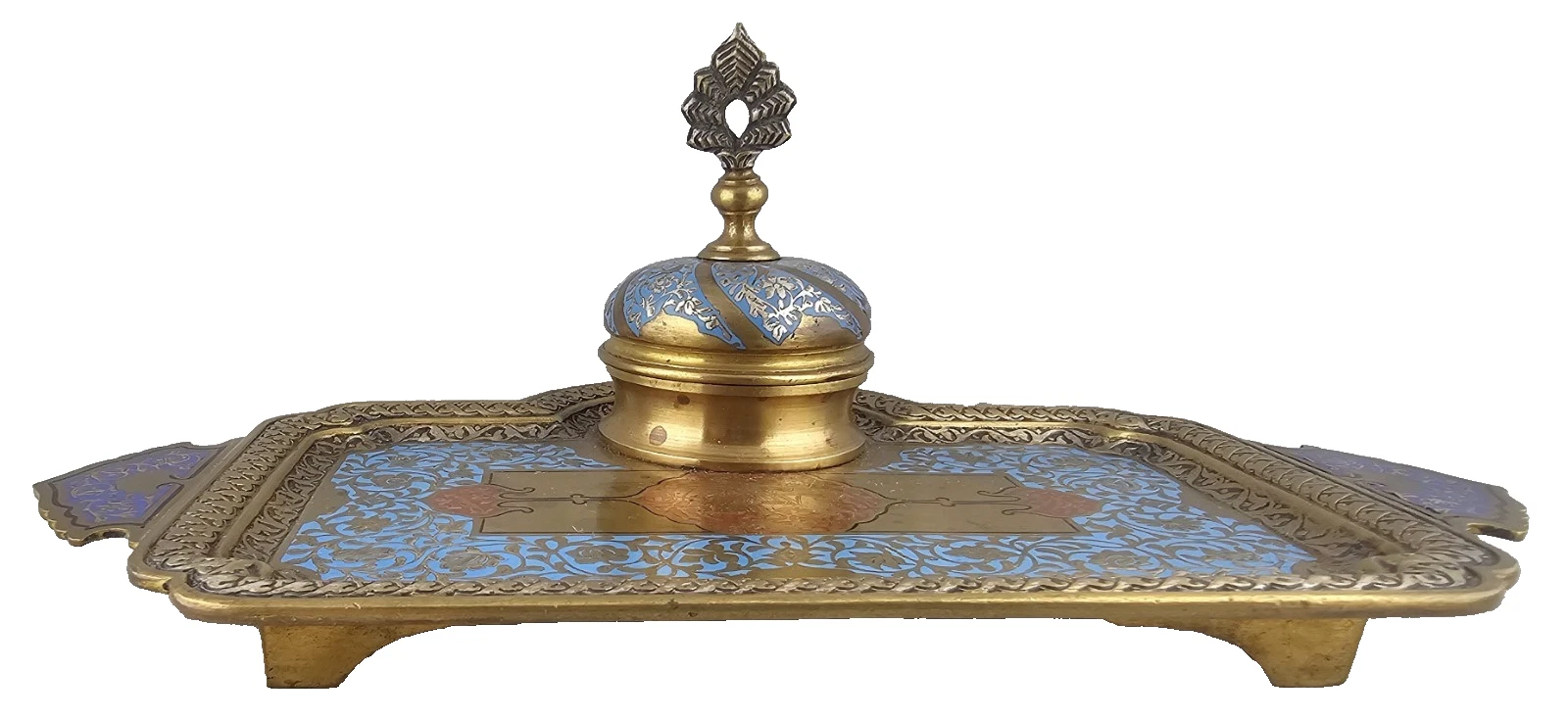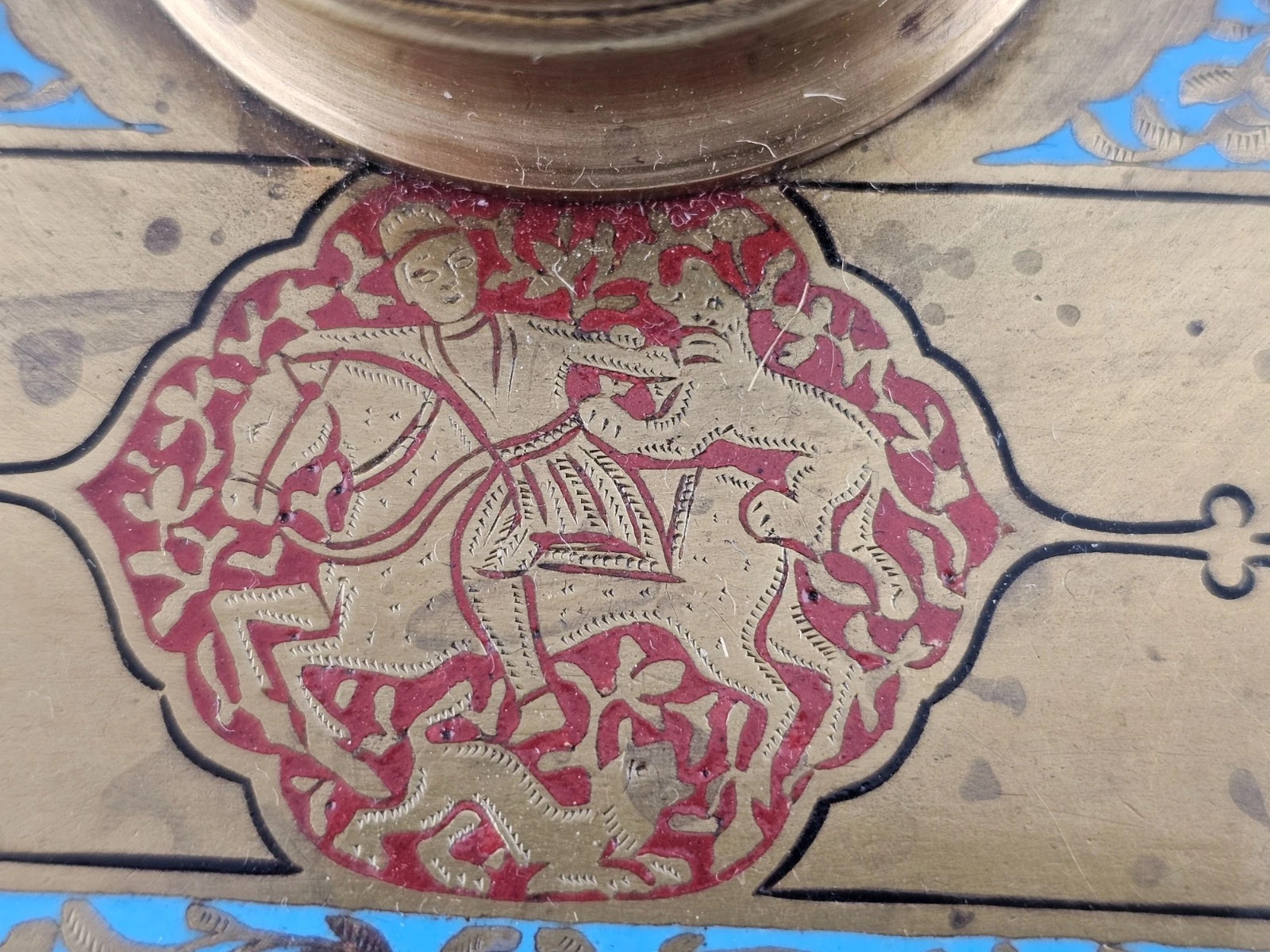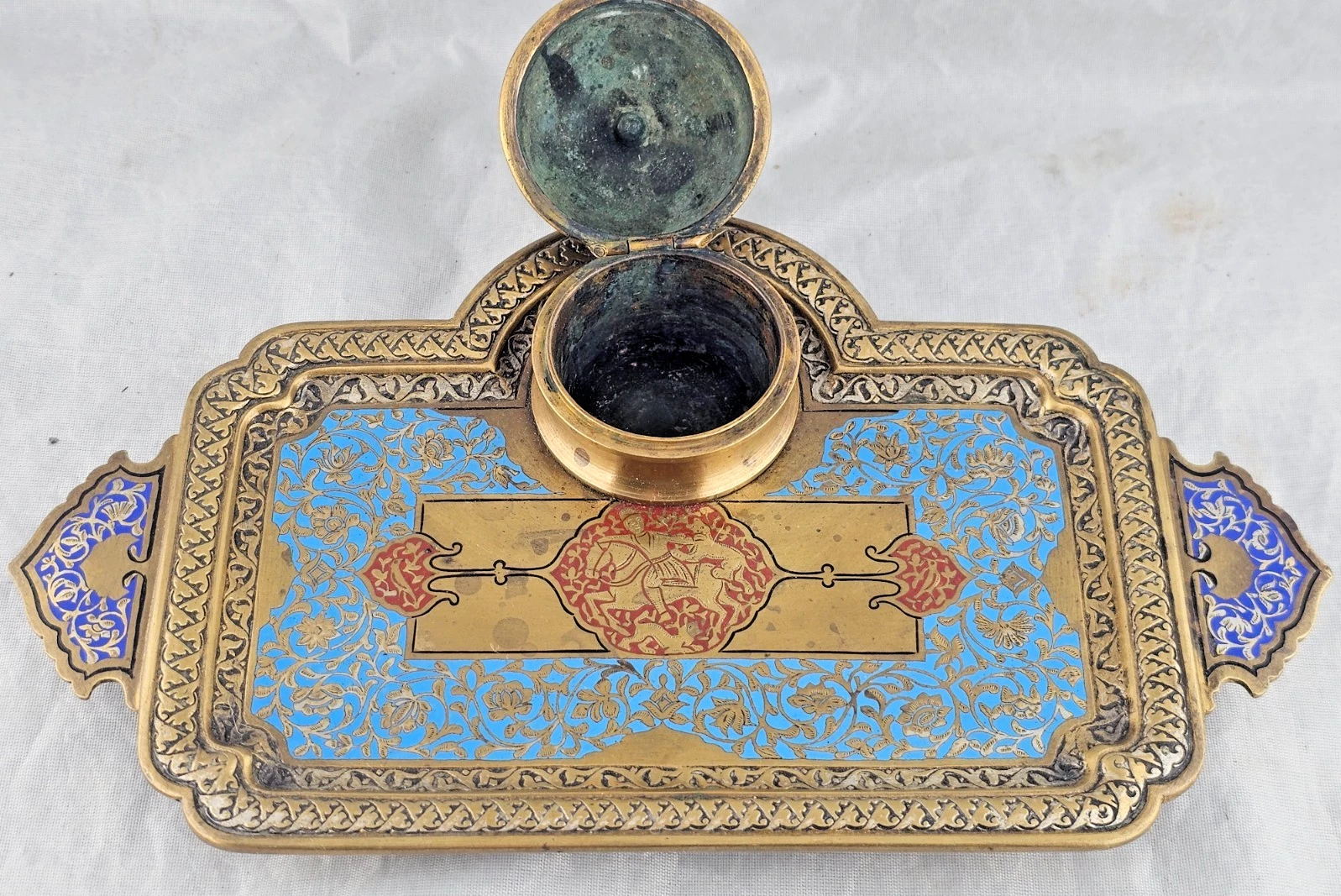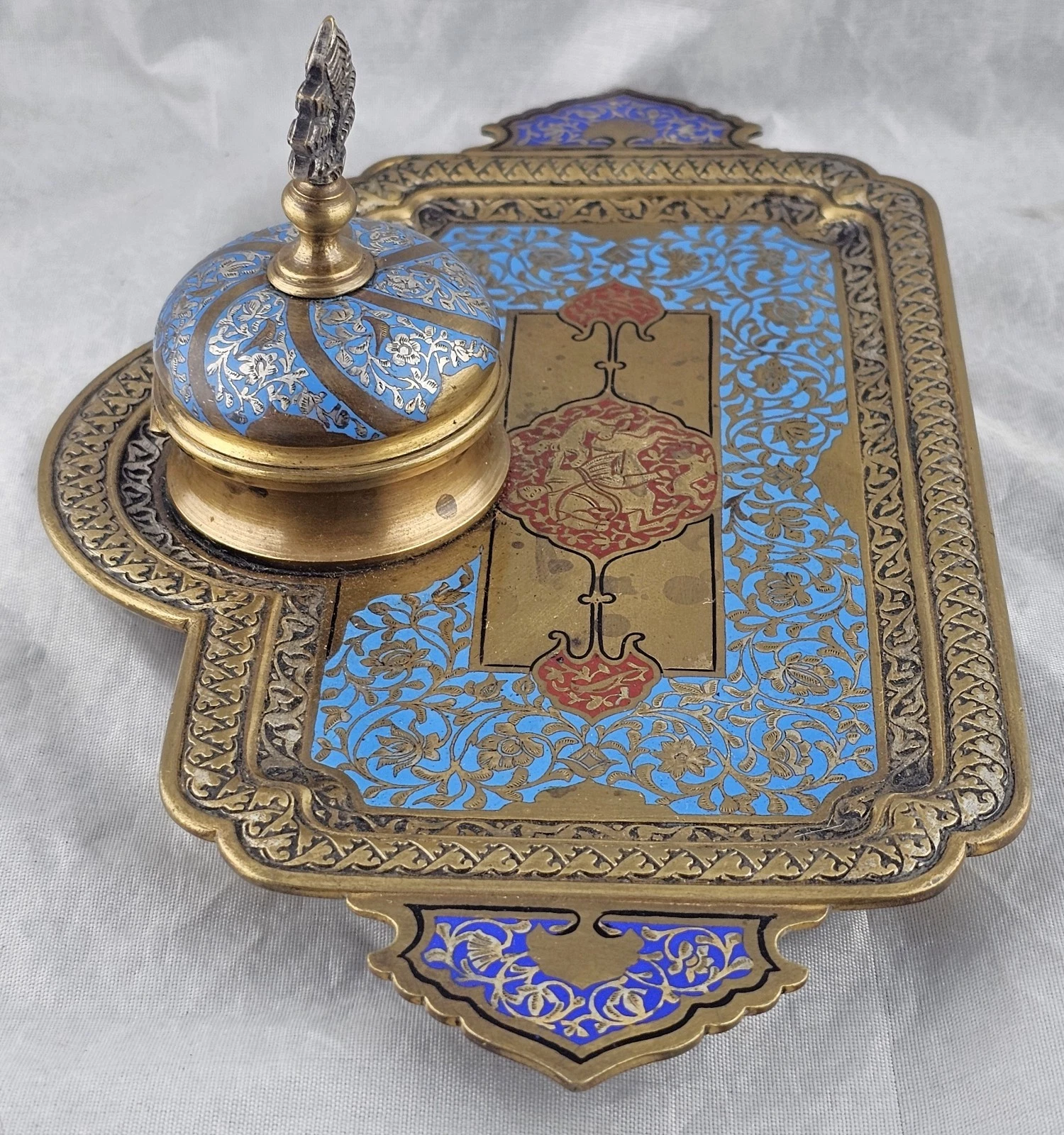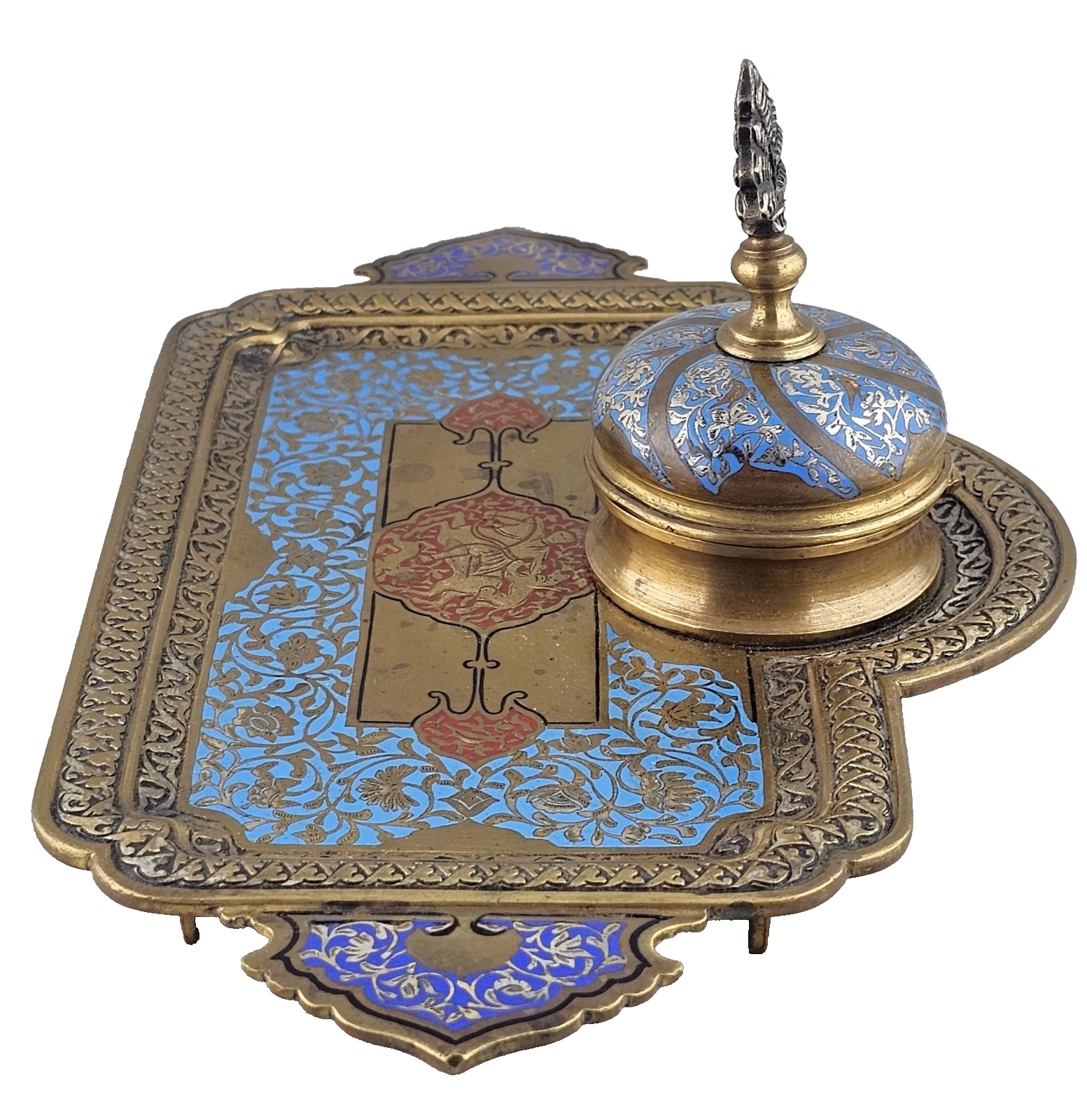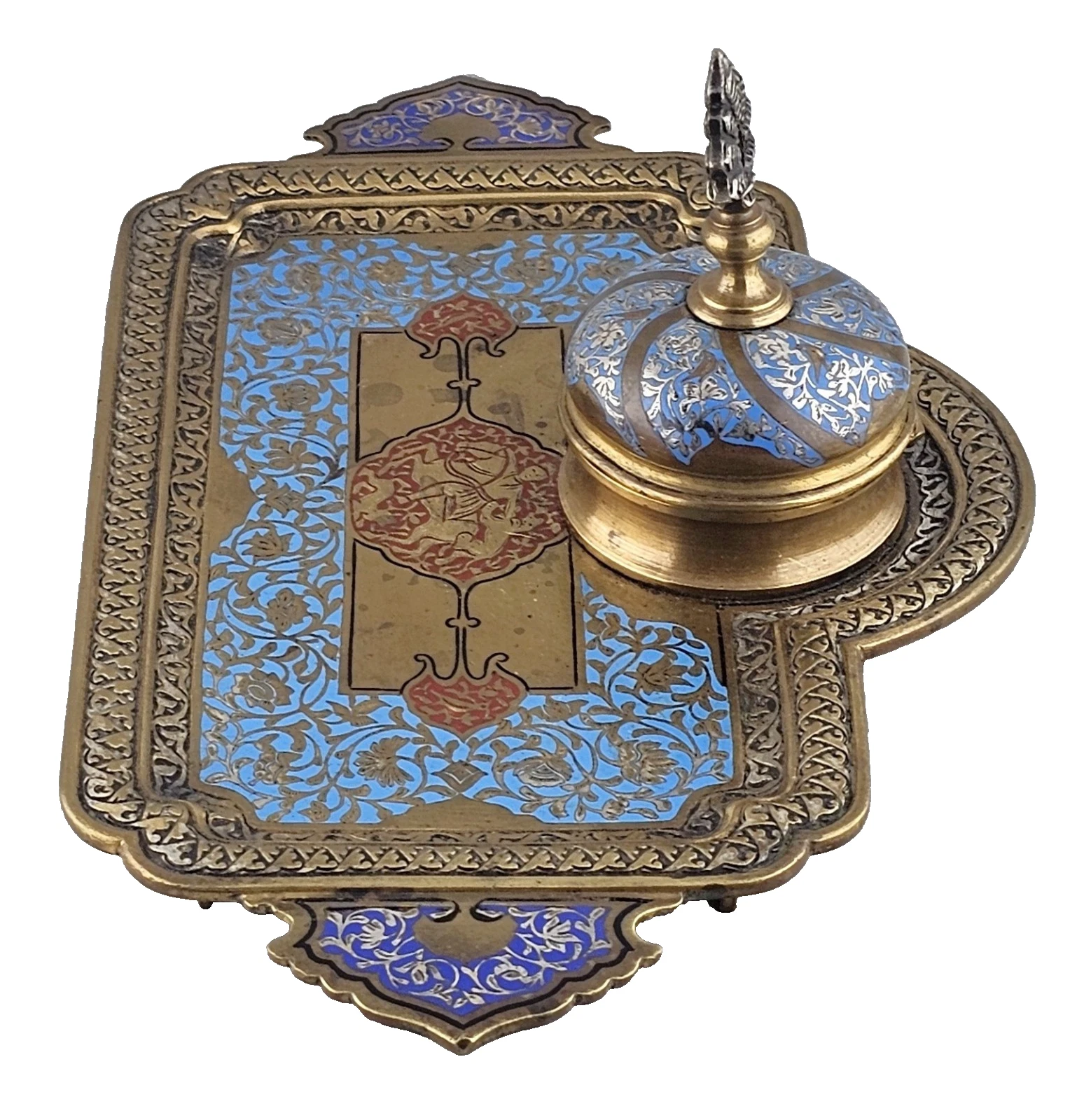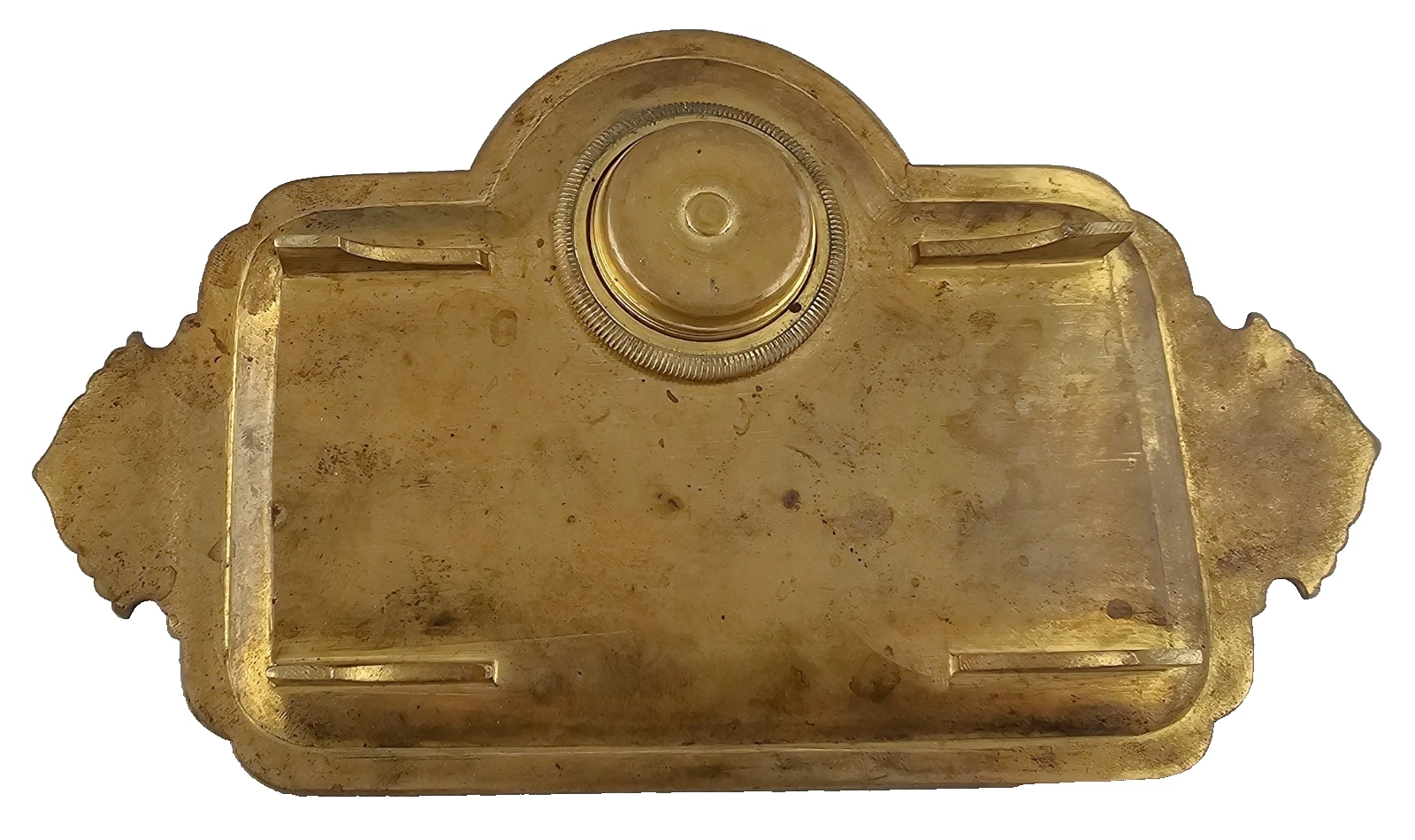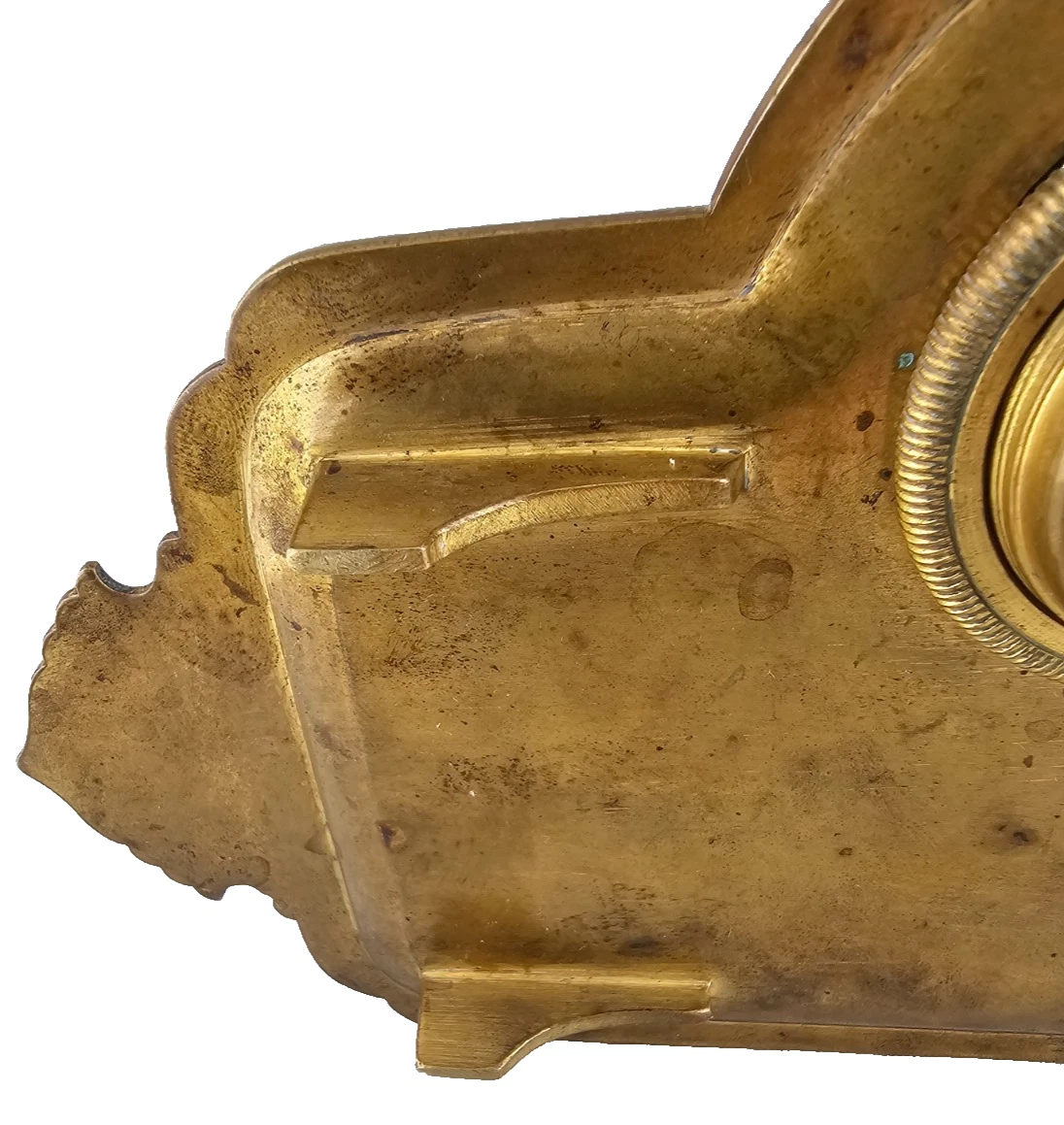
Cloisonné Inkstand – Chinese Export
| Categories | Enameled Metal |
| Type | Cloisonné |
| Material | Brass, Enameled Brass/Bronze/Metal |
| Markings | Unmarked |
| Manufacturer | Undetermined |
| Origin | China |
| Date or Era | circa 1900 |
| Measuring | 8 ⅞” x 5 ¼” x 3 ½” high |
Enameling Technique: Cloisonné
The technique used to create the vibrant, detailed designs on this inkstand is cloisonné. This method involves soldering thin metal wires (called cloisons, from the French word for “partitions”) to a base metal to form compartments. These compartments are then filled with colored enamel paste, fired, and polished to create a smooth, glassy finish.
Origin and Age
The style and iconography of this inkstand strongly suggest a Chinese origin, specifically from the late 19th or early 20th century (Late Qing Dynasty or early Republic period). The use of cloisonné, a technique perfected in China, the floral and geometric patterns, and the figurative scene all point to a Chinese export piece likely made for the Western market.
The Story of the Horseback Rider
The central scene depicts a figure on horseback fending off two beasts. This is not a common Western motif but is a well-established theme in Chinese and Central Asian art, often representing the legendary hero or historical figure “Sā’īgōng” (薩公) or “Sāgōng.”
Sāgōng is an archer and hero from the Central Asian folklore of the Mongol and Turkic peoples, often associated with a mythological tale of a brave archer fighting mythical creatures. The two beasts he is fending off are stylized leopards or tigers, which in Chinese culture often symbolize ferocity, strength, and power. The scene is a powerful representation of courage and mastery over nature.
Finial Description
The finial on the inkwell’s hinged lid is a small, ornate, three-dimensional sculpture styled in a floral or leafy design. The finial has multiple layers of openwork, with spiraling, curling forms that resemble blossoms or intertwined vines.
Sold for $150 in August 2025
Content disclaimer. The information posted is the owner’s best knowledge and may not have been vetted by the SOIC. We welcome comments, corrections, and additions, working to make our website information comprehensive and accurate.
Join the Society of Inkwell Collectors (SOIC) – it’s free!
Founded in 1981 as a non-profit organization,
we are documenting inkwells (and accessories).
We’re here to help and inform!



